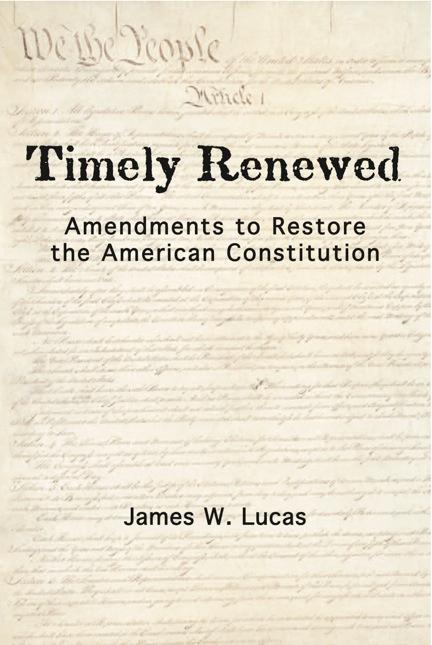Wisconsin Pro Publica and some regional newspapers have just published a lengthy report on a new push to amend the U. S. Constitution through the call of a convention under Article V. This Article, which governs how the Constitution is amended, provides that Congress should call a convention to propose amendments “on the Application of the Legislatures of two thirds of the several States.” This procedure has never been used, as all amendment to the Constitution have instead been initiated by Article V’s other process of two vote of both houses of Congress.
The proposed lawsuit is based on the fact that there are hundreds of outstanding calls for an amending convention, far more than the 34 constituting two thirds of our 50 states. The complication is that most of these applications specify a particular subject for the amendment(s) to be proposed at the convention. Can a call for a convention to propose an amendment mandating a balanced federal budget be aggregated with one to allow state legislatures to be apportioned on a basis other than gross population (the two most common topics of calls in the last half century)? The lawsuit will argue that a call for a convention is a call for a convention, and the subject matter designations in the state applications should be ignored.
This would not be the first time this argument has been tried. In 2000 and 2004 Article V activist Bill Walker filed similar lawsuits, which were all dismissed by the courts on the grounds that the determination was to be made solely by the Congress. It is not clear how the new lawsuit would try to work around these precedents. One strategy may be that the promoters of the new lawsuit are looking to have it brought by a state, which jurisdictionally would have a stronger standing than Bill Walker as a private citizen.
Regardless of the fate of such a new lawsuit to force Congress to call a convention under Article V, it raises again the issue that the Framers clearly intended that the states as well as the federal Congress be empowered to initiate amendments to the Constitution, yet the procedures of Article V have proven inadequate to realize that intent. Even if an Article V convention were called, the absence of any agreed procedures, or agreement on how to agree, would mire the effort in irresoluble risks and uncertainties.
The point of Article V was that the Framers recognized that there would be a need to revise and update the Constitution as time and experience showed. Shouldn’t we apply the same logic to Article V itself? The half of Article V intended to enable states to initiate amendments has proved completely ineffective. Rather than expend endless resources on long-shot lawsuits and a risky and uncertain convention concept which is outside the American people’s experience, why not use Article V to reform Article V itself? The text of such a reformed Article V can be found here on this website. This “Amendment Amendment” provides clear unambiguous procedures familiar to all Americans to enable them, acting through their states, to be the final arbiters of their Constitution’s meaning.


